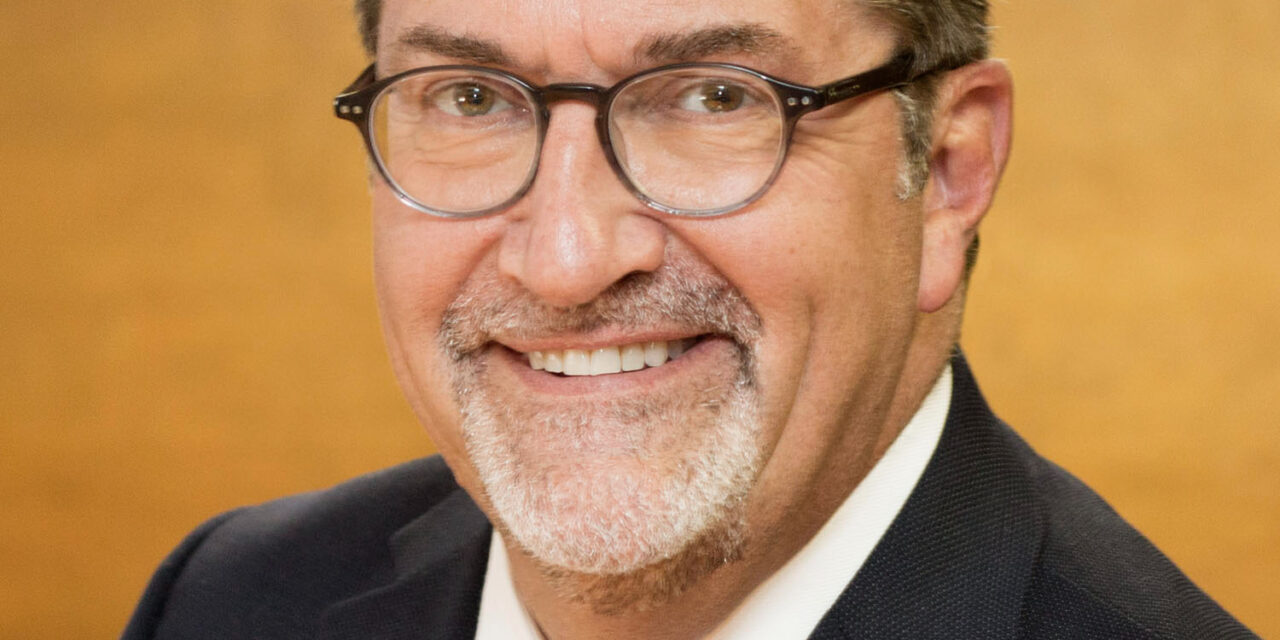Arkansas Municipal League Executive Director Mark Hayes
moved to Arkansas with his family at 16. He graduated from
Arkansas State University with a Bachelor of Science degree in
business with an emphasis in human resources, then attended law school at the U.A. Little Rock William H. Bowen School.
Prior to taking over as executive director last year, Hayes spearheadedthe Municipal League’s legal affairs, serving as general counsel for many years. In that capacity, he’s argued before the Arkansas Supreme Court, the 8th Circuit Court of Appeals and has managed a case that was heard by the United States Supreme Court. That case, Plumhoff v. Rickard, set history as no other state league in the country has appeared before the United States Supreme Court. The outcome was favorable, not only for Arkansas, but for law enforcement officials across the country. Mark got his start in municipal law as an assistant city attorney for the city of Little Rock.
What are some of the biggest challenges Arkansas cities face? How is the Municipal League helping address these challenges?
An increasingly digital world requires cities to be on the cutting edge of technology. This isn’t easy, given revenue constraints, decaying infrastructure and a need to understand substantial legal and regulatory considerations. Additionally, finding a well-trained and educated workforce is a challenge for just about every employer in this state, and municipalities are not immune from that.
The League exists to ensure municipalities have the resources and training necessary to get the very best use out of each and every taxpayer dollar. Our voluntary benefits programs are specifically structured for local governments. The League has programs to protect municipal assets, employees and citizens. We have a vehicle and property program, a worker’s compensation program, a health benefit plan and a liability pool.
Why is New Urbanism important to the future of Arkansas cities?
Municipal infrastructure needs may be the single largest hurdle city officials face today. Without good streets, high-quality water and top-notch public safety services, growth cannot occur. Smart growth does occur when properly motivated people focus on what a city has, what it’s deficient in, and where it would like to be. Armed with that plan, abandoned neighborhoods are reborn, downtowns become vital and thriving, and long-absent city pride and spirit come to life.
The largest single factor in this renaissance? Municipalities. Mayors, city managers and administrators, councils and boards have focused themselves on planning and the wise use of revenues. The results are outstanding.
As the new Executive Director of the Municipal League, what is your vision and priorities for the future?
The League must keep up with an increasingly technological world, and our legislative efforts have to match the very specific needs of communities. We have been given the honor to help Arkansas’s cities and towns. We’ll be developing a long-term plan for our building, technology, services and programs to ensure that each of this state’s 500 cities and towns gets the quality they so richly deserve.
What are the key elements every comprehensive community plan should tackle to make that effort relevant?
Community planning is precisely what it sounds like: people and resources converging to review where they are, where they want to be and what’s needed to get there. Community is the key and it’s important for the League to remember, for any City Hall to remember, that we exist because of the diverse communities within our city borders. No comprehensive plan will be brought to life without buy-in from all sectors of the community. Business and education leaders must be involved. Church and civic leaders must be involved. The elderly and the young must be involved. All aspects of a city must have a place at the table.
I would be remiss if didn’t mention the need for active communication and cooperation with both state and county officials. Local government isn’t on an island; all levels of government intersect with all aspects of a community. I believe in thinking big but starting small with every detail considered by those with skin in the game. From that, great cities do make a great state.



